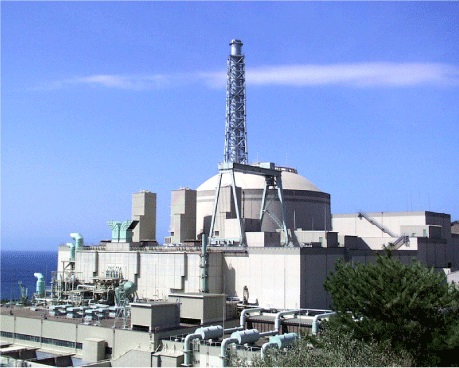The announcement, made directly to the Governor of Fukui Prefecture Issei Nishikawa by both the Science Minister (Hirozaku Matsuno) and the Industry Minister (Hiroshige Seko), was just slightly ahead of the expected governmental meeting on December 20, in which the official fate of Monju will be made policy. This announcement leaves some room for doubt as to the permanence of the decision. However, the ministers assured Nishikawa that the plan will be to decommission the facility. This process is expected to cost roughly $3.2 billion. The ministers informed the prefecture that restarting the Monju reactor would have taken at least eight years and cost over $4.5 billion.
Instead of operating Monju, the Japan Atomic Industrial Forum reported that the government appears poised to propose the construction of a new fast-reactor on the same site (or at least within Fukui prefecture) with French collaboration. Decommissioning of the Monju reactor should also provide valuable information in the life-cycle of sodium-cooled fast reactors.
The Monju facility has had a long and troubled history. According to NHK World, the plant has only operated 250 days since 1994. The plant was once seen as a shining star in the Japanese national plan to achieve a closed fuel cycle, but operational and safety problems long ago sidelined the plant. The December 19 decision, although regrettable, was entirely expected, and in fact hints that the plant could be sidestepped had already appeared in future plans for fast reactor research.
The Fukui Governor maintains vehemently that the decision to abandon further operation has been taken too hastily, and urges that the Japanese government reconsider its plan. Although, this is likely to fall on deaf ears, given that the cost to fix the plant is a third more than the cost to decommission it.
 Will Davis is Communications Director and board member for the N/S Savannah Association, Inc. He is a consultant to the Global America Business Institute, a contributing author for Fuel Cycle Week, and he writes his own popular blog Atomic Power Review. Davis is also a consultant and writer for the American Nuclear Society, and serves on the ANS Communications Committee and on the Book Publishing Committee. He is a former U.S. Navy reactor operator and served on SSBN-641, USS Simon Bolivar.
Will Davis is Communications Director and board member for the N/S Savannah Association, Inc. He is a consultant to the Global America Business Institute, a contributing author for Fuel Cycle Week, and he writes his own popular blog Atomic Power Review. Davis is also a consultant and writer for the American Nuclear Society, and serves on the ANS Communications Committee and on the Book Publishing Committee. He is a former U.S. Navy reactor operator and served on SSBN-641, USS Simon Bolivar.



 Will Davis is Communications Director and board member for the N/S Savannah Association, Inc. He is a consultant to the Global America Business Institute, a contributing author for Fuel Cycle Week, and he writes his own popular blog Atomic Power Review. Davis is also a consultant and writer for the American Nuclear Society, and serves on the ANS Communications Committee and on the Book Publishing Committee. He is a former U.S. Navy reactor operator and served on SSBN-641, USS Simon Bolivar.
Will Davis is Communications Director and board member for the N/S Savannah Association, Inc. He is a consultant to the Global America Business Institute, a contributing author for Fuel Cycle Week, and he writes his own popular blog Atomic Power Review. Davis is also a consultant and writer for the American Nuclear Society, and serves on the ANS Communications Committee and on the Book Publishing Committee. He is a former U.S. Navy reactor operator and served on SSBN-641, USS Simon Bolivar.